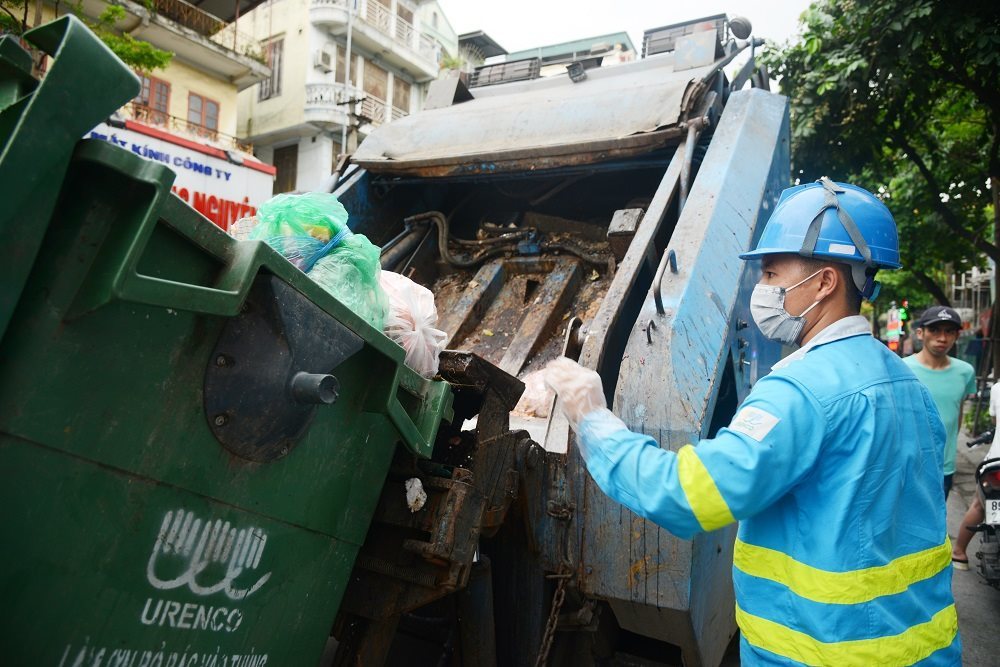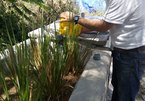According to the Directorate General of Environment, 13,000 tons of waste is generated every day in HCM City, including 8,300 tons of domestic waste, 1,500-2,000 tons of industrial waste, 1,200-1,600 tons of waste from construction works, 22 tons of medical waste and 2,000 tons of sludge of different kinds.

In Hanoi, 6,500 tons of domestic solid waste are produced each year.
While the volume of domestic waste is high, waste treatment is ineffective. The fees collected from people are not high enough to cover waste treatment expenses.
One ton of waste costs $24 to collect, $11 to transport and $4 to bury, which means a total cost of $39 for one ton of waste.
| The slow development of a waste collection, transport and treatment system in Vietnam is caused mostly by limited financial resources. |
Meanwhile, every household in Hanoi has to pay only VND26,500 a month for the waste collection and treatment, or VND218,630 per ton ($9.7 per ton), of which VND172,600 ($7.6) is spent on collection and VND46,030, or $2 on transport.
The central and local governments face the possibility of failing to reach the target of collecting and treating 90 percent of total domestic solid waste.
Of the waste which can be collected, only a little can satisfy the requirements on environmental protection. Most of the waste is treated in landfills with unhygienic designs, which causes serious pollution.
A report found that there are 660 landfills in Vietnam, but only 30 percent are recognized as meeting hygienic requirements.
Hanoi and HCM City have large landfills with areas of 85 and 130 hectares, respectively. Only 9 percent of landfills have waste weighed, and 36 percent have bottom lining.
According to Nguyen Thuong Hien, deputy general director of the Directorate General of Environment, one of the most important goals for 2016-2020 is dealing with the environment pollution at 30 unhygienic polluting landfills. However, this still cannot be implemented because of the lack of resources.
Recycling
Under the national solid waste management strategy, Vietnam strives to collect and treat 90 percent of total domestic solid waste in urban areas in accordance with the requirements on environment protection.
The strategy also mentions the tasks of improving the capability of reusing, recycling and treating waste while collecting back energy or making organic fertilizer.
Vietnam hopes that by 2025, all special and first-class urban areas would have solid waste treatment works which fit waste classification at source.
However, to date, the classification of waste at source has not been implemented. This means that even if Vietnam has waste treatment plants with advanced technologies, it would still be difficult to treat waste.
Le Ha

Vietnamese Govt considers fee for domestic waste treatment by volume
If the draft law is approved, people will pay a waste collection and treatment fee based on the amount of waste they produce.

Da Nang pilots vetiver grass waste treatment system
A group of scientists and biological researchers from Da Nang’s Teacher Training and Engineering College has developed a vetiver (Vetiveria Zizanioides) grass-based system to treat leaks at Khanh Son dump in the city.